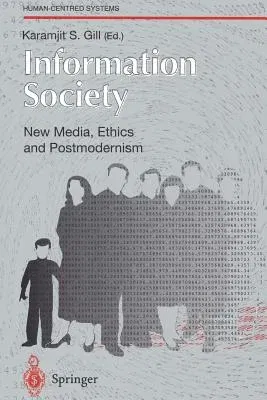Information Society: New Media, Ethics and Postmodernism (Softcover Reprint of the Original 1st 1996)Paperback - Softcover Reprint of the Original 1st 1996, 2 April 1996

Qty
1
Turbo
Ships in 2 - 3 days
In Stock
Free Delivery
Cash on Delivery
15 Days
Free Returns
Secure Checkout
Part of Series
Human-Centred Systems
Part of Series
Lecture Notes in Artificial Intelligence
Print Length
390 pages
Language
English
Publisher
Springer
Date Published
2 Apr 1996
ISBN-10
3540760369
ISBN-13
9783540760368
Description
Product Details
Book Edition:
Softcover Reprint of the Original 1st 1996
Book Format:
Paperback
Country of Origin:
US
Date Published:
2 April 1996
Dimensions:
23.39 x
15.6 x
2.18 cm
ISBN-10:
3540760369
ISBN-13:
9783540760368
Language:
English
Location:
London
Pages:
390
Publisher:
Weight:
589.67 gm

